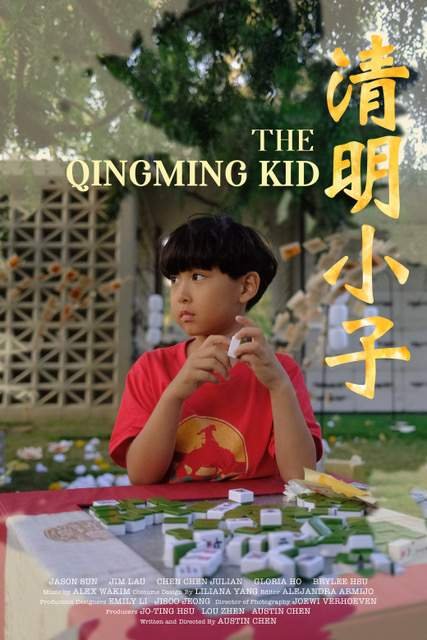Enlightenment and The Qingming Kid

While America still has far to go in a realistic understanding of some cultures, her eagerness to investigate other lands and peoples through film is a substantially positive step forward. Audiences in the United States have placed value in the authenticity of gifted filmmakers who can impart cultural sensibilities through their talent; a scenario which also illuminates some professionals perhaps not so familiar to American audiences. A recent darling of the festival circuit receiving immense praise, the cast of The Qingming Kid possesses many recognizable faces but it’s those behind the scenes like Austin Chen (Director/Writer) and Producer Jo-Ting Hsu who have established the world and tone in which these characters exist. A heart-warming tale of a young boy who must share his birthday with a major cultural holiday, The Qingming Kid teaches the universalities which can be found among us even in a setting we’ve never been aware of, until watching this extraordinary story.

The tragic mistake which most of us share is that we did not value the time we had with some family members when we were young. Our parents, if they’ve done their job well, have made us feel special and perhaps paved the way for a somewhat selfish view of life. The day of reckoning comes for us all when we must concede that we are not in fact the center of the universe. In The Qingming Kid, this day comes for Eugene (actor Jason Sun) on his eighth birthday when he has a chance encounter at the graveyard with an elderly gambler (Jim Lau of such Primetime Emmy Award–Winning Series as The Marvelous Mrs. Maisel and Tom Clancy’s Jack Ryan) who is more than he seems. Typically surrounded by loving female family members like Po Po (Gloria Ho), Lihua (Chen Chen Julian of the Apple+ Primetime Emmy Award–Winning Series For All Mankind), and Janet (Brylee Hsu of Greta Gerwig’s Oscar Award–Winning Barbie), Eugene’s interaction with this elderly male during the Qingming Festival is an enlightening moment for him. Our individual self borrows from our family and heritage; a powerful lessons Eugene learns which leads to a truly maturing moment in this story. If there is a moral to The Qingming Kid, it is to be aware of what we are connected to and appreciate its great value.
What is so enticing about this film is its specificity. Most Americans have likely never heard of the Qingming Festival which honors family members who have passed on by taking desired and favored items to the grave site and paying respect. Additionally, Eugene and his family are prime modern-day immigrants who display qualities like their vacillation between speaking Mandarin Chinese and English. They retain important cultural celebrations while also establishing themselves in the US. Austin Chen procured producer Jo-Ting Hsu to ensure that the very DNA of this film be true to the core. From overseeing the locations and crew to tweaking the Mandarin dialogue and even the selection of the appropriate fruit to be offered at the gravesite celebration, Jo-Ting’s presence was profoundly impactful on this film. Deeply invested in the desire to achieve the right tone for The Qingming Kid, Ms. Hsu even approached Austin about revisions which led to the most intimate moments of this film. She states, “During the prep of the film, I suggested we focus on revising the story and dialogue between the protagonist and his grandpa to make it more casual and closer to our daily life conversation. In my opinion, the earlier version leaned so far into the perspective of Eugene that it risked being a ‘kid’s film’ and what we were going for was exhibiting that crucial moment when Eugene reaches a new level of maturity. I was happy that Austin agreed with me and I think these changes are what allowed us to create the magical situations that our cast personified so well.”
The Qingming Kid has brought laughs and tears to audiences as an official selection at such prestigious events as the Silicon Valley Asian Pacific Film Festival, Houston Asian American Pacific Islander Film Festival, Boston Asian American Film Festival, and others. This signifies its embrace by both the American public as well as the Asian-American one. Jo-Ting takes great pride in this stating, “I believe The Qingming Kid resonated with audiences and festival juries alike because it beautifully encapsulates the themes of family, tradition, and the enduring nature of love. The story’s emphasis on honouring ancestors and the kindness shown among family members struck a universal chord. Festivals often seek films that not only entertain but also evoke deep emotional responses and provoke thought, and this film effectively achieved that.”
Writer : Calvin Hooney






